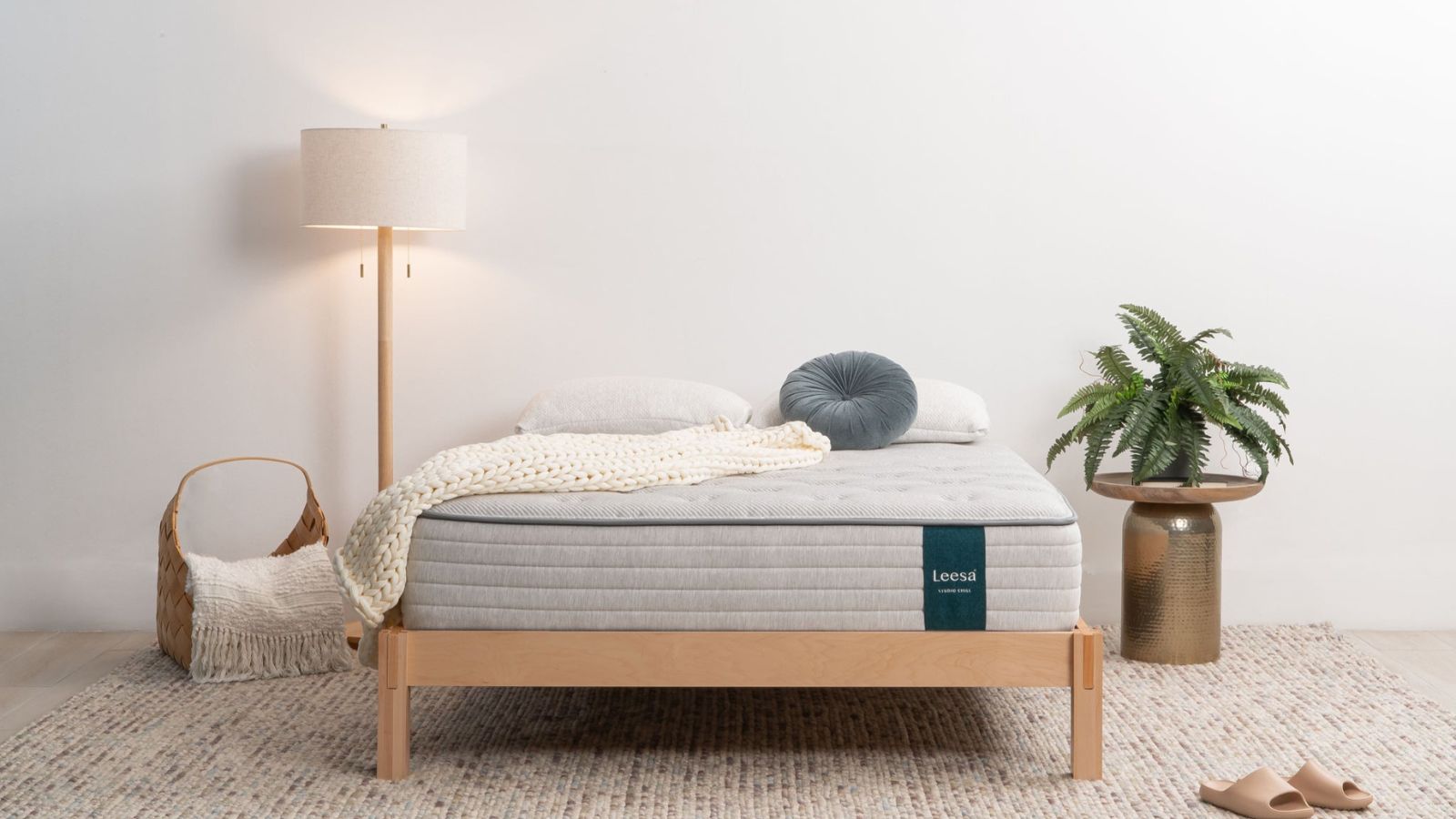
As H&G's specialist sleep writer, I'm often asked 'what is the best mattress firmness?' I rarely give two shoppers the same answer, since every sleeper needs to find their own ideal balance of comfort and support. Plus, mattress firmness is so subjective: what feels nice and supportive to you could feel hard as nails for your partner, while their plush mattress might give you a sinking feeling.
In the same way that different clothing brands use diverse sizing systems to describe the fit and feel of a product, different mattress brands use diverse descriptions for mattress firmness. Some mattress stores rate firmness on a numerical scale of 1 to 10, where 1 is super-soft and 10 is ultra-supportive. Others talk in terms of 'Soft', 'Medium', or 'Firm' mattresses: this system might be easier to understand, but it makes it harder to compare beds across brands.
I lead a team of expert testers to find the world's best mattress. Together, we represent a wide range of body types and sleep styles. Based on our months and years of in-depth, at-home testing experience, I can tell you how to choose a mattress firmness level that suits your body type, your sleep position, and your personal preference.
What is the best mattress firmness? Experts advise
The best mattress firmness for you is the one that offers the best balance of sinkage versus support to keep your spine straight. That way, you should avoid aches and pains in your neck, shoulders, and lower back. I asked a panel of medical professionals and sleep scientists to help me outline the pros and cons of each mattress firmness rating.
What is the best mattress firmness?
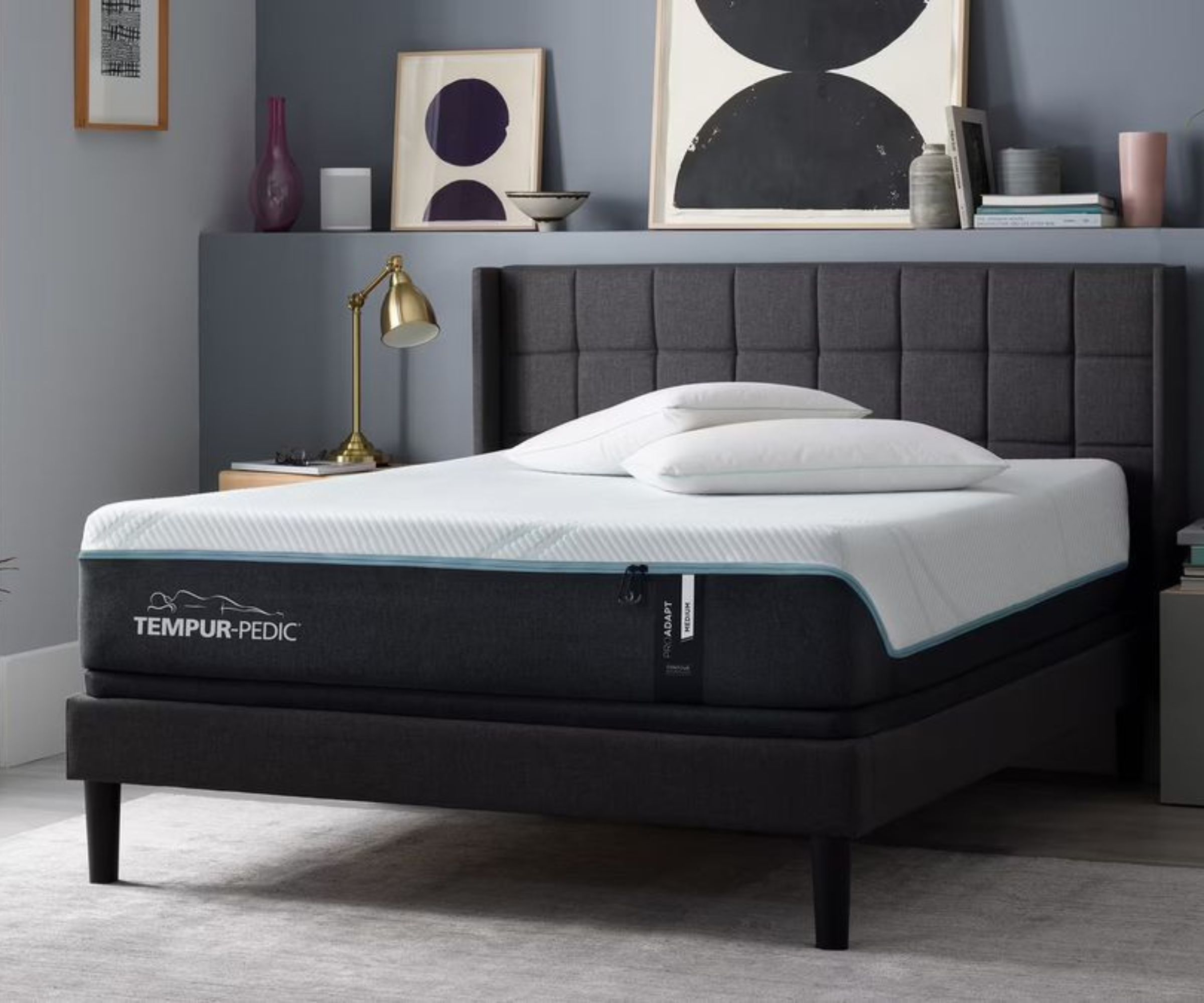
Before we begin, it always helps to define our terms. Mattress firmness is how hard or soft a mattress feels when you lie on it. It's a direct indicator of the comfort and support you'll get from a mattress.
At Homes & Gardens, we measure mattress firmness on a scale from Soft to Medium-Soft to Medium to Medium-Firm to Firm. That's a subjective standard based on our assessment of more than 30 mattresses.
A firm mattress is not necessarily more supportive than a soft mattress. That's because firmness is linked to the comfort layers towards the top of the mattress, while support comes from the mattress core or base layer. Don't worry if some of these terms are new to you: you can always get clarity from my mattress jargon buster.
What is a soft mattress?
On a firmness scale of 1 to 10, a soft mattress would fall somewhere between 1 and 3. Also known as a plush mattress, a soft mattress is made from contouring materials, such as polyfoam, that closely conform to the shape of your body to create a 'hugging' sensation.
- Support: it depends on your sleep position, as well as your weight. Smaller, slighter side sleepers might appreciate the pressure-relieving properties of a soft mattress, but taller, broader sleepers will sink too far, throwing their spine out of alignment.
- Thermoregulation: your average soft mattress is made from foam, which tends to trap heat. I would hesitate to recommend a soft mattress to a hot sleeper.
- Durability: soft and squishy materials tend to deteriorate faster than firm ones. This means that soft mattresses tend to have a shorter lifespan.
What is a Medium mattress?
For the purposes of this article, we'll take the 'medium' mattress rating to encompass everything from 'medium-soft' to 'medium-firm'. On a numerical firmness scale, we're looking at the range from 4 to 6.
This is the most popular mattress firmness rating. A Medium mattress is a great option for couples who share a bed, but not a sleep style. Most of the best places to buy a mattress stock medium-soft to medium-firm models, so you shouldn't struggle to find a mattress that meets your needs.
- Support: the support of a medium mattress comes more from the core than from the uppermost comfort levels, so you don't get the same sinkage as you'd get from a soft mattress. I'd recommend a Medium mattress for any sleep position.
- Thermoregulation: since a medium mattress doesn't conform so closely to the body as a soft mattress does, it's a better option for hot sleepers.
- Durability: a medium mattress is made from sturdier materials, such as high-density foam, that resist sagging. That's why a medium mattress tends to last longer than a soft mattress.
What is a Firm mattress?
A Firm mattress would fall anywhere from 7 to 10 on the firmness scale. When you lie down on a firm mattress, you'll feel that you're sitting on top of the surface, instead of sinking into softer materials.
If you appreciate enhanced support, then you should consider the best firm mattress. We've tried and tested traditional innersprings, high-tech hybrids, and nice, dense memory foam models for pressure relief without the sinking feeling.
- Support: a firm mattress would offer the best support for back and stomach sleepers. A firmer surface helps to minimize sinking in the midsection to promote proper spinal alignment. If you're a side sleeper, or you suffer from chronic pain, I'd recommend a softer surface for pressure relief.
- Thermoregulation: since firm mattresses have little to no sinkage, they're much less likely to trap heat than softer surfaces.
- Durability: to resist sagging and sinking, a firm mattress must be made from highly durable materials. With proper care, you'll get years more use out of a firm mattress than you would a soft or even a medium mattress.
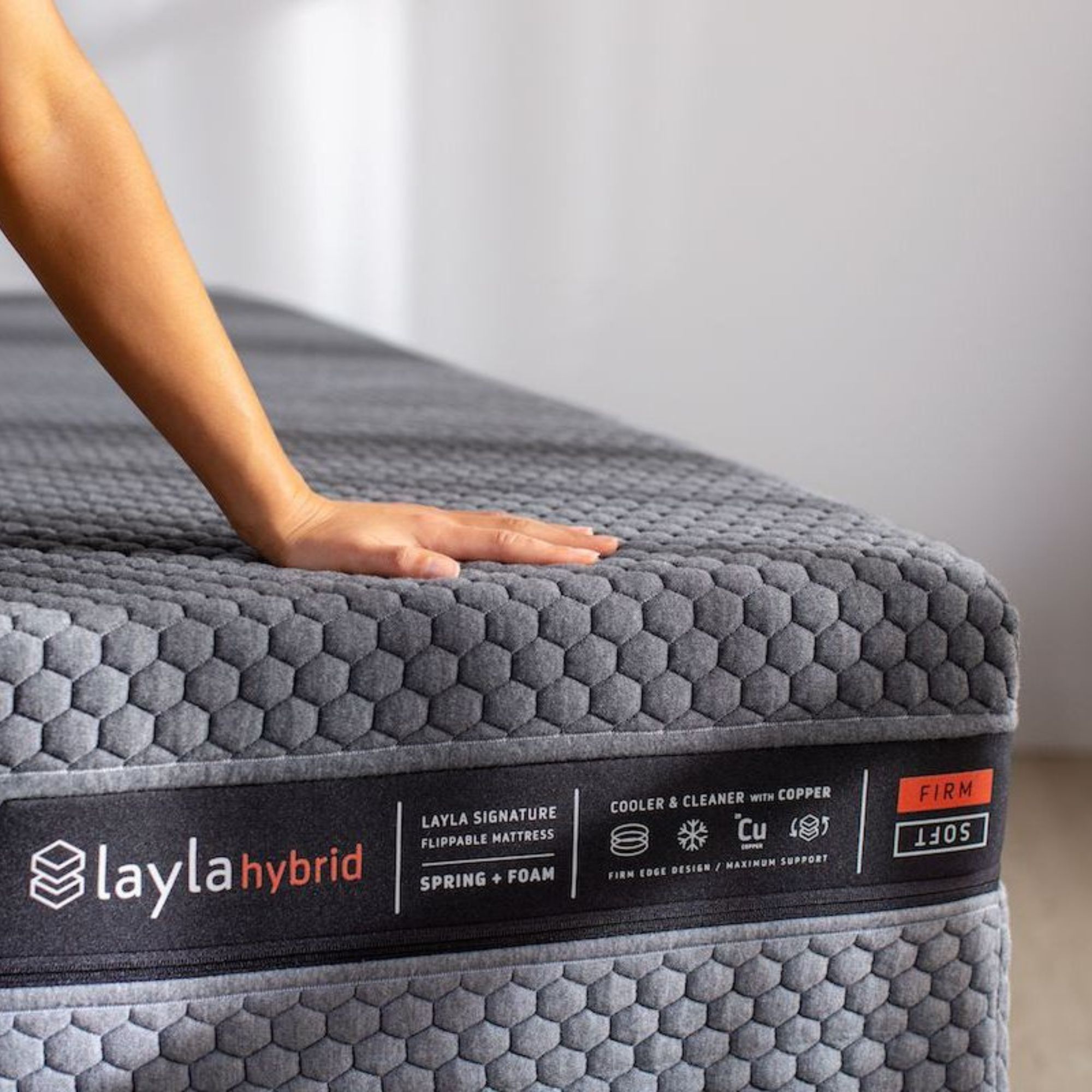
This flippable mattress would go great in your guest room. There's a firmer side for enhanced support, as well as a softer surface for plush comfort and pressure relief.
Read the full review: Layla Hybrid Mattress
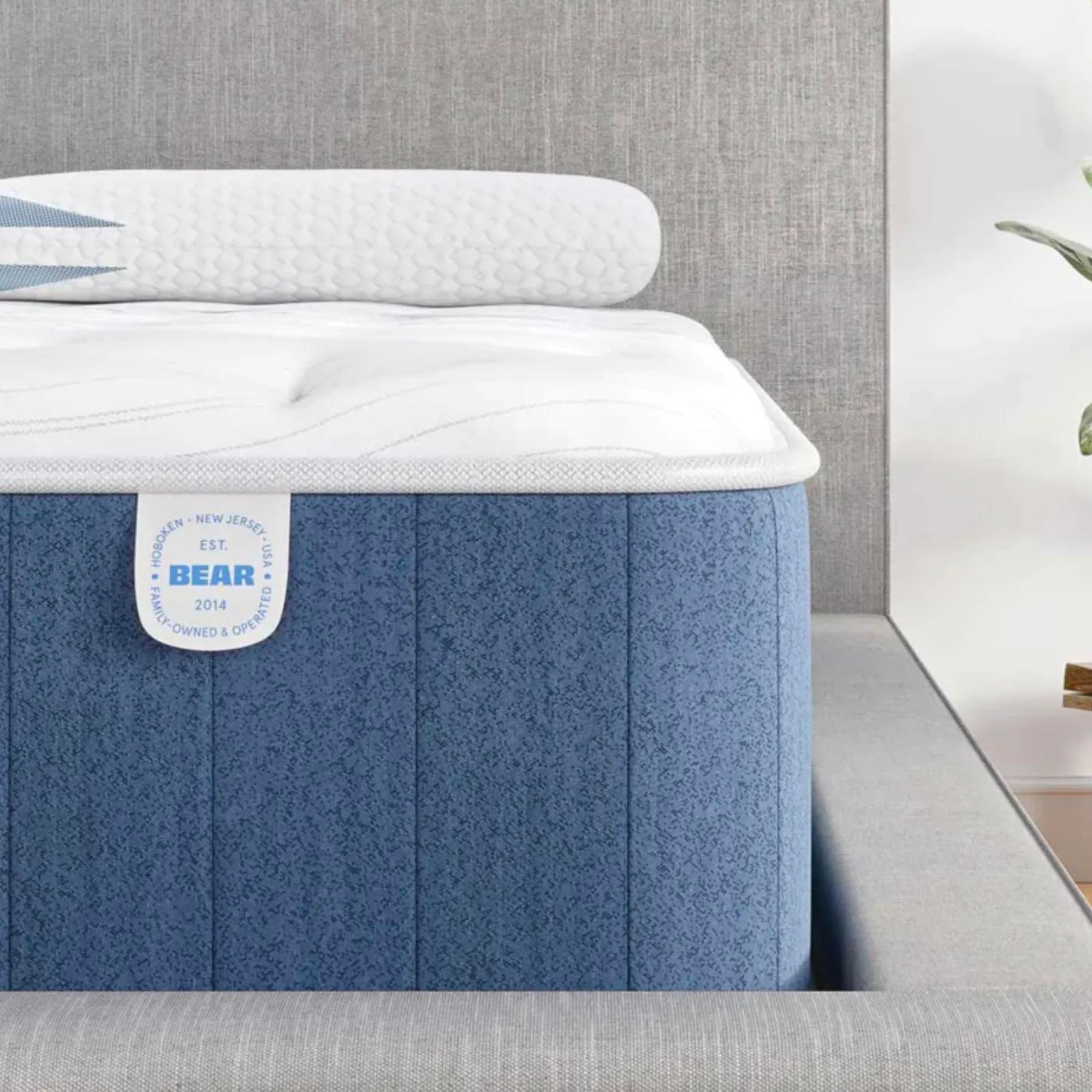
Our expert tester, Alex, says that the Bear Elite Hybrid Mattress offers the best of both worlds. It's soft enough to cushion your joints yet sufficiently supportive to stop that sinking feeling.
Read the full review: Bear Elite Hybrid Mattress
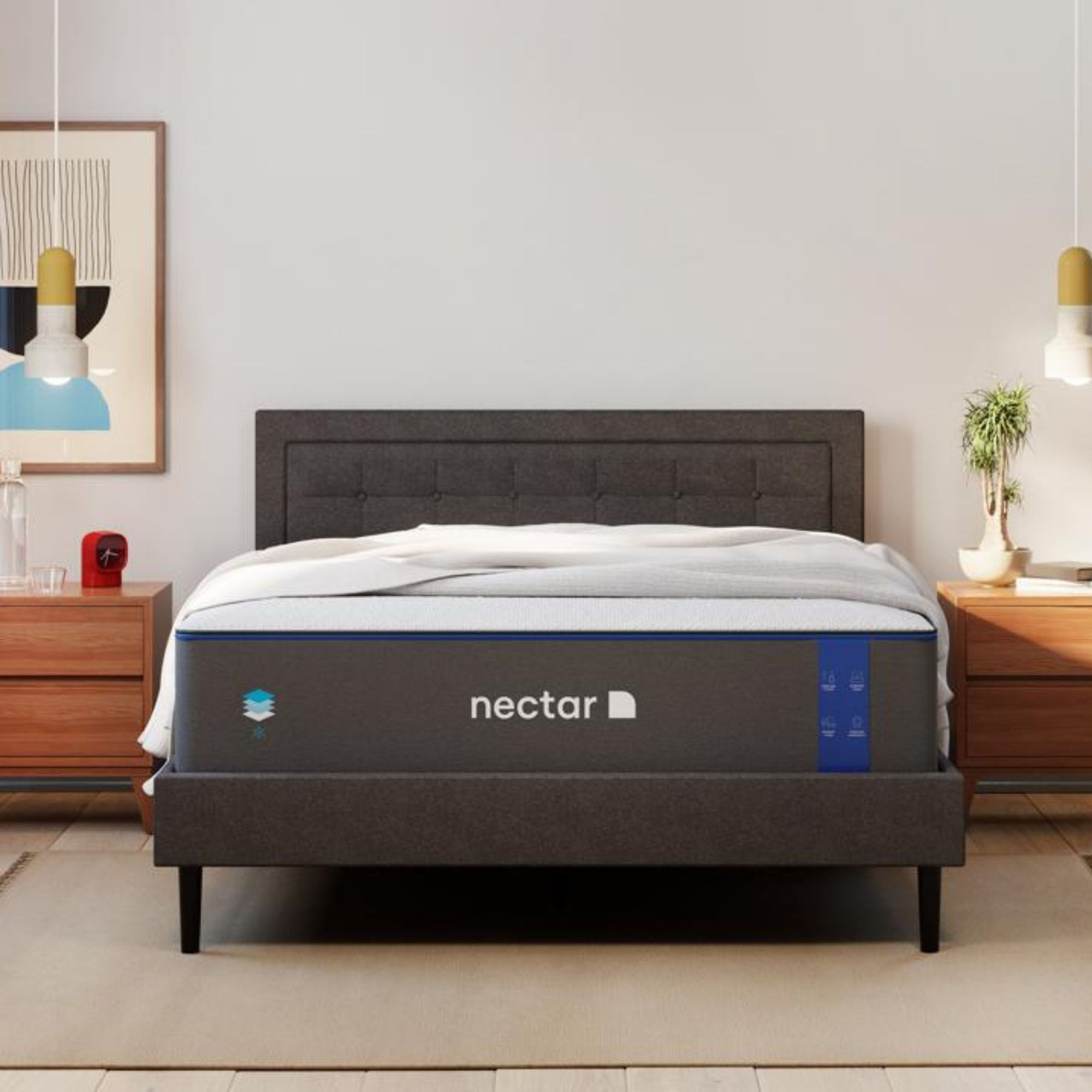
This high-density mattress just goes to show that a foam bed can feel firm. Our expert tester, Casey, credits the Nectar Memory Foam Mattress with easing the aches and pains from her fibromyalgia and keeping her spine in line.
Read the full review: Nectar Memory Foam Mattress
How to find the best mattress firmness for you
Which mattress firmness feels best for you depends on a whole host of factors, from your preferred sleep position to your body type. I asked an expert panel of medical professionals and sleep scientists to help me match up mattress firmness ratings with different sorts of sleepers.
Best mattress firmness – by sleep position
- Stomach sleepers: 'If you are a stomach sleeper, then a firm mattress can provide the extra support needed to keep the spine in as neutral a position as possible,' says Dr. Kevin Lees from The Joint Chiropractic. 'A mattress that isn't supportive, that feels too soft, can add stress to the natural curve in the lower back and add to the extension and/or rotation of the neck in a person that sleeps on their stomach.'
- Back sleepers: 'If you are a back sleeper, then you will likely get the best balance of support and cushioning from a medium-firm mattress,' says Dr. Kevin. 'If the mattress is too firm, then there may be gaps in support where the mattress no longer makes contact with the entire body. This can also create pressure points and may add stress to the spine and hips of the person using the mattress.'
- Side sleepers: Dr. Kevin says that 'side sleepers tend to have more pressure on their shoulders and hips. The best mattresses for side sleepers are medium or medium-soft: still supportive, just with enough cushion to accommodate those areas. A side sleeper might also appreciate a firm mattress with a pillow top for pressure relief.'
Best mattress firmness − by body type
- Heavier sleepers: According to Theresa Schnorbach, a leading sleep scientist for Emma Mattress, 'Heavier individuals may benefit from a firmer mattress to provide extra support and prevent sinking. This should help to maintain proper spinal alignment and alleviate pressure points.' Some mattress brands specifically design beds for plus-sized sleepers. Try the WinkBed Plus or the Saatva HD for targeted support.
- Lighter sleepers: 'Anyone who weighs under 230lbs will probably prefer a slightly softer mattress,' advises Theresa, 'though stomach sleepers will always need a firmer mattress to keep their spine aligned.'
FAQs
What mattress firmness do hotels use?
Most hotels opt for medium mattresses. That's because the hotel managers can never be sure who they're accommodating – whether it's a back, front, or side sleeper − so it's safest to take the middle road.
I've written an entire article answering the question 'what mattresses do hotels use?', showing you where to buy the plush beds from five-star hotels.
What mattress firmness is best for kids?
Younger kids, aged 3 to 7 or 8, sleep best on a medium-firm or firm mattress. Those firmness ratings offer enhanced spinal support for growing sleepers. As your kids become tweens and teens, they might appreciate the pressure-relieving properties of a medium mattress to ease their growing pains. Saatva has great guidance on choosing a mattress for your child.
How do you make a soft bed harder?
There are plenty of ways to make your mattress firmer without buying a brand-new bed. The easiest and most affordable upgrade is to buy the best mattress topper. I suggest high-density foam or Dunlop latex to lend support to a soft, sagging old mattress.
Equally, there are ways to make a hard bed softer. A plush mattress topper, filled with microfiber, feather and down, low-density foam or Talalay latex could soften up a firm, inflexible mattress.
Mattress firmness is highly subjective, and what feels comfortable and supportive for you might feel all wrong for the next person. To find your ideal mattress firmness, consider your body weight, your sleeping position, and your personal preference.







